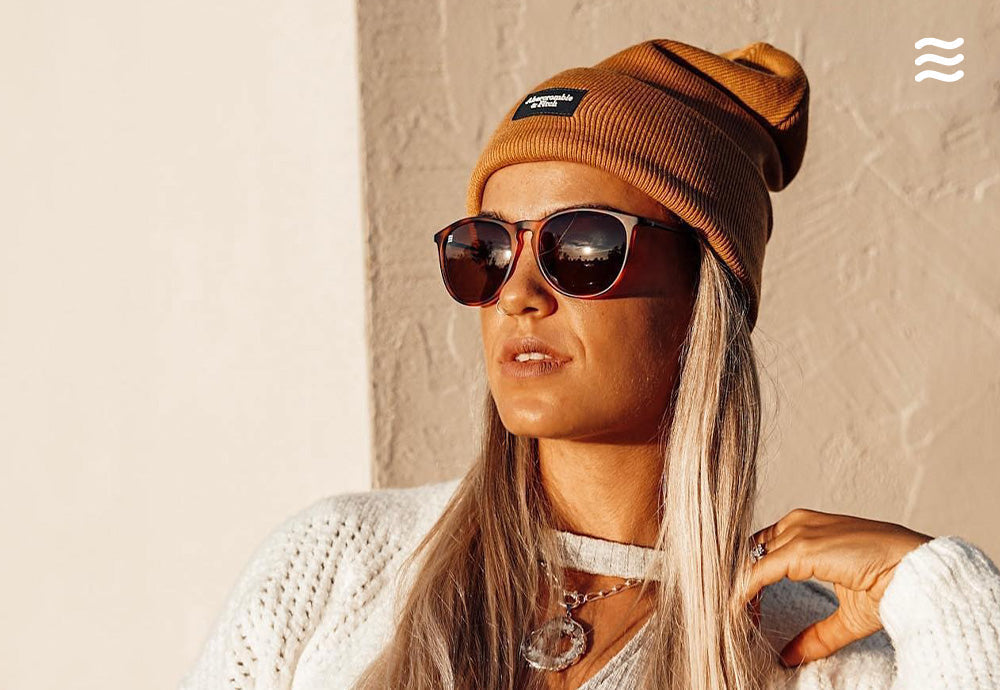
Sunglasses are an essential item during the summer months. They help protect your eyes from the glare of the sun, but can also be the perfect complement to your outfit. Sunglasses can help keep our eyes safe from a range of diseases and eye conditions. They can also help us see despite the harsh sunlight, and act as the perfect accessory to bring your fashion together. Here are 10 factors to consider before investing in this essential piece of eyewear.
#1 UV Protection Is A Must-Have
The main purpose of sunglasses is to protect your eyes from the sun’s harmful UV rays. Ultraviolet (UV) light can damage your eyes over time, causing long-term cataracts, and even eye cancers. Exposure to UV light can also increase the chances of pterygium, which is a thickening of the eyes outer layer. When choosing a pair of sunglasses you need to choose those with 400 nm, which is the equivalent of 100% UV protection.
#2 The Bigger The Better
The bigger the pair of sunglasses, the more of your eyes get protected. So invest in the oversized or wraparound style for full protection from sunlight. If you have full UV protection but tiny eyewear, you won’t feel the benefits of protection from the sun. So invest in a fun, bigger set that will keep the whole of your eyes fully protected. Fortunately retro oversized frames are in fashion in 2022.
#3 Make Sure They Block Out The Sunlight
Can you see your eyes through your sunglasses? If you see your eyes looking back at you from behind your eyewear, then they aren’t blocking out enough sunlight. 75-90% of sunlight should be blocked with a standard pair of sunglasses. Any pair with 100% UV protection should also block out this amount of sunlight as standard.
#4 Cost Is Not The Priority
The main factor with sunglasses is that they block out the sun and protect against UV rays. If they don’t do the basics, it doesn’t matter how expensive they are; they aren’t really a pair of sunglasses. Factors like comfort and style should also matter more than the cost of the eyewear. Eye doctors recommend that you wear sunglasses every day when out in the sunlight, so you need to make sure they’re a pair you actually like.
#5 Check The Quality Of The Lenses
The quality of your lenses will affect both how you see with the sunglasses on, and how they look overall. Fortunately you can check the quality of a lens for imperfections. Hold your lenses against a straight edge like a table, and look through them at arm's length. If the lenses curve, bend or are dented, these are the signs of poor quality lenses.
#6 Consider Wraparounds
Wraparounds protect your eyes from the sides and from the front, offering full UV protection. They wrap around the side of your face, stopping harmful rays or direct sunlight from entering your eyes. They are also often polarized, which additionally protects against glare from factors like water reflecting direct sunlight.
#7 Find A Lens Color You Love
Sunglasses can have many different lens colors which do not influence how good they are at offering UV protection. Some of the additional benefits of certain lens types is that they boost contrast when playing sports in direct sunlight. If you play tennis, volleyball, golf, or cricket, this can stop the sun from affecting your game.
#8 Choose Sunglasses That Suit Your Style
When buying a pair of sunnies in the winter months, remember that your style might be significantly different over the summer. If you buy bold frames that’s great, but remember you need to be happy wearing them alongside a particular outfit on the beach or just generally outdoors. We've got a huge variety of cool sunglasses shapes and frames available to choose from.
#9 What Else Do You Need?
When you buy a pair of sunglasses, you might also need them to have a particular coating or tint, to protect your eyes in certain situations:
- Polarized - polarized sunglasses help cut out the reflected glare from water, snow or pavement. Find polarized shades for men here.
- Gradient tint - gradient tints run tints from bottom to top, or top to bottom, and are particularly useful for seeing while driving.
- Mirror tint - a mirror tint is useful for reducing sunlight in high glare situations, especially when combined with wraparound frames.
- Impact resistant - strengthened lenses useful for providing some extra support during sports.
- Photochromic - the lenses adjust automatically to the sunlight. In bright light they become darker, and in dark light they become brighter.
#10 Make Sure Your Sunglasses Suit Your Face
If you have a smaller, rounder face, then huge round lenses might not complement your face shape. The same logic goes for square frames and a square face. If you have an oval face shape, larger lenses can help reduce the length of your face. Try your sunglasses before you buy to make sure you’re happy to wear them all summer long.
Looking for the most on-trend styles? Aviators have been a long-loved sunglasses shape for a reason - this shape never really goes out of fashion!



















































































































































